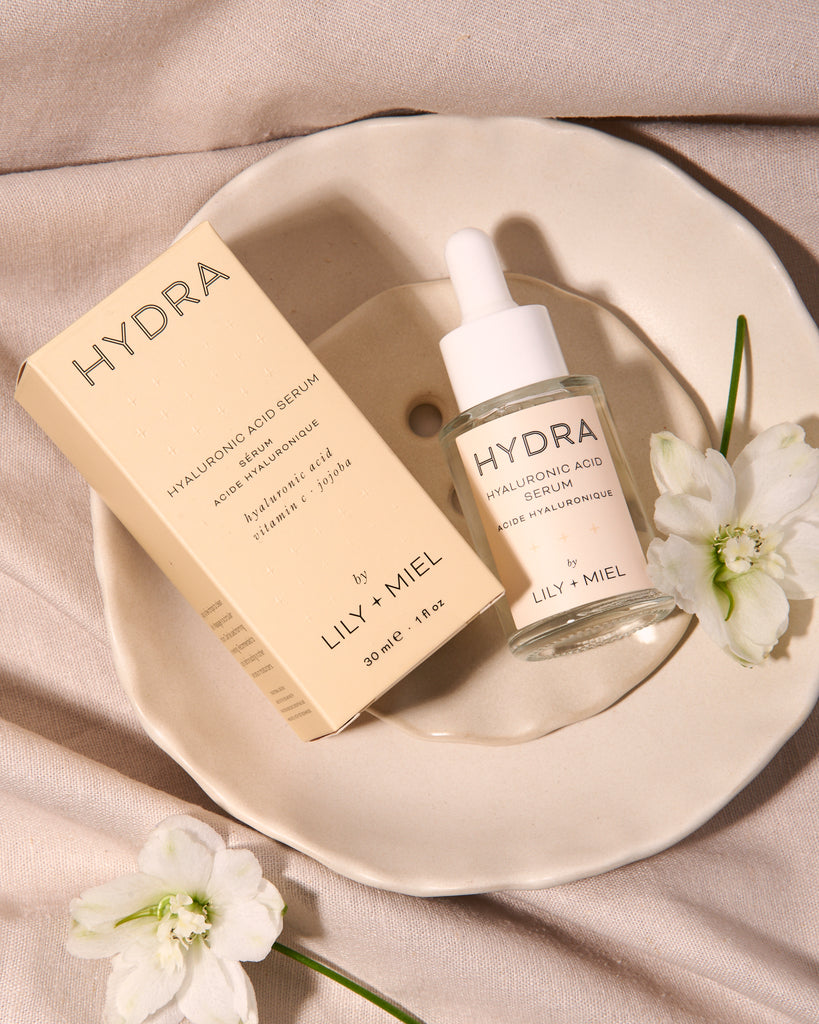What is Hyaluronic Acid?
Hyaluronic Acid is known as a humectant, meaning it works as a sponge by retaining water, leaving the skin plump & dewy.
Hyaluronic Acid is a natural substance found in areas of the body including the skin, eyes and joints. The primary function of hyaluronic acid is to keep these areas hydrated, acting as a cushion, as it has the ability to hold up to 1,000 times its weight in water. It works by trapping water in the tissue cells as it binds to water molecules increasing the overall water content.
As we age, the levels of hyaluronic acid in our bodies naturally decrease. In fact, the levels of this substance can decline more than half compared to those of young people. As a result, our skin loses moisture, volume, elasticity and plumpness.
 Why should I use it on my skin?
Why should I use it on my skin?
Who wouldn’t want that hydrated, plump and dewy look?
The skin is our largest organ of the body and has the ability to absorb a large percentage of the nutrients we apply to it. Applying hyaluronic acid topically is not only good for retaining moisture in the skin but it also helps to protect the skin barrier from harmful pollutants and outside environmental damage. The added benefit of keeping the skin hydrated is that is makes fine lines and wrinkles less visible, improves the suppleness of the skin and it makes us look more radiant. Applying hyaluronic acid during the winter months is especially important as that is when the skin tends to be the driest. It is important to keep the skin barrier intact, as having dry or dehydrated skin can leave the skin barrier more vulnerable to damage or cause breaks in the skin, which could allow bacteria in and potentially could lead to infection.
In other words…. HYDRATE! HYDRATE! HYDRATE!
 Most importantly, how do I use it?
Most importantly, how do I use it?
Think Moisture Magnet
Hyaluronic Acid pulls moisture from where moisture exists and needs moisture in order to work properly. This is why it should be used on damp skin (think after cleansing, toning but not dried), and locked in with a moisturizer or face oil. The idea is that you want to pull moisture into the skin rather than pull out from the skin. Applying on dry skin can actually have the opposite effect, leaving your skin more dehydrated.
Hyaluronic Acid has been deemed safe for most all skin types. Although it is typically recommended for dry skin, anyone can benefit from added moisture. You can always try a patch test if uncertain.


